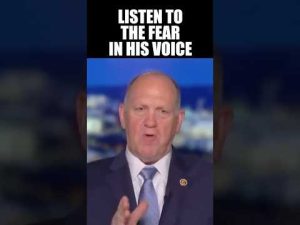In a world swamped with opinions and stories that often feel more like fiction than fact, one figure stands bold and unyielding against the media tide. This figure, a staunch advocate for conservative principles, has taken a firm stance against what is frequently labeled as “fake news.” This battle against misinformation is not merely a political choice; it’s a personal crusade rooted in a belief that the truth must prevail.
The battle lines have been drawn, and the rhetoric tends to get tangled. The president is steadfast in his resolve, refusing to back down in the face of harsh criticism and label-calling. Despite frequently being associated with extreme terms such as “Nazi,” which he vehemently rejects, he insists he is on a mission to save the country—a mission crafted on principles of freedom and honesty. In his view, the media’s representation of reality is riddled with inaccuracies, tarnished by a narrative that all but erases conservative viewpoints.
As trust in the media continues to plummet, it’s evident that many Americans share the president’s suspicions. According to recent statistics, a mere 28% of the overall population expresses confidence in the media, marking the lowest trust level in four decades. For Republicans, that number drops significantly to just 8%. One can’t help but feel a fascinating irony here; as the media swells with reports on the government, those very reports seem to erode the trust that is necessary for democracy to thrive.
The president’s observations bring an interesting point to light: the rise of skepticism towards the media has roots in personal experiences. A journalist shared a nostalgic anecdote about growing up with only one television in their Bronx apartment. While listening to the news, their father, who had fled a regime that stifled truth, marveled at the idea of living in a land where the news was not just government propaganda. This childhood memory underscores the belief in the importance of journalistic integrity and authenticity.
As the struggle for truth unfolds, the president’s focus on reclaiming the narrative has sparked a commitment among many to continue the mission of responsible journalism. The sentiment is clear—though the landscape is marred with chaos and confusion, the fight for accurate representation and the right to speak freely remains paramount. In a time where dismissals are common, and trust is in jeopardy, there’s a collective hope that actual transparency can rise above the cacophony of misinformation.
In conclusion, the ongoing debate surrounding media trust and representation is not just a question of politics; it’s a matter of principle. Those who seek the truth are continuing their battle in a world that seems to delight in controversy over clarity. With resolute figures like the president at the forefront, the commitment to articulate a narrative grounded in facts remains unshaken. As the media and its critics continue to clash, one thing seems certain: the dialogue around the truth will continue—and it promises to be anything but dull.







